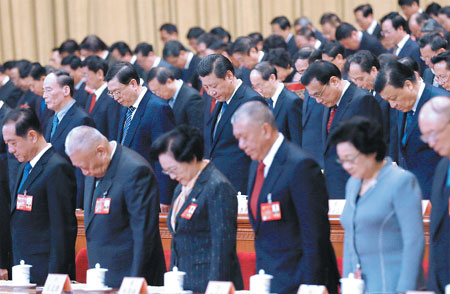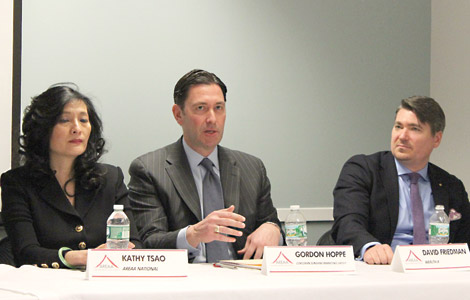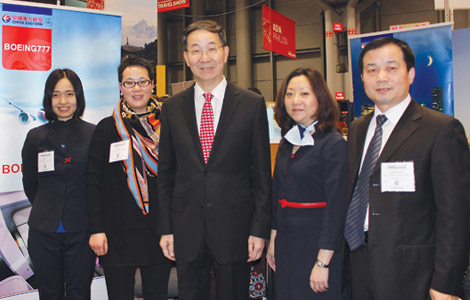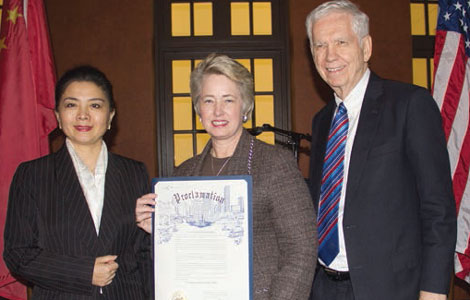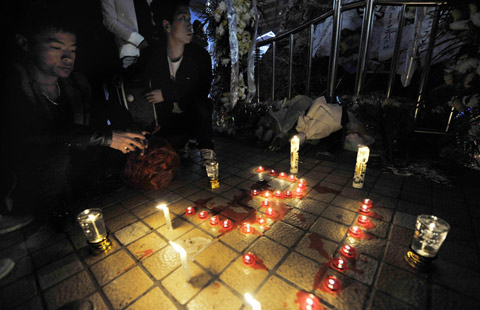Visa waiver boosts Beijing visits
Updated: 2014-03-05 08:58
By Zheng Xin (China Daily)
|
||||||||
Convenient tax refund program may also attract more overseas travelers
Beijing saw nearly double the number of travelers that benefited from the capital's 72-hour visa waiver policy in January compared with the same period last year, authorities said on Tuesday.
The city received 1,746 transit passengers in January at Beijing Capital International Airport who benefitted from the waiver policy, which allows a visitor with an airline ticket to stay 72 hours without a visa. The jump represented a year-on-year increase of 184.8 percent, according to the Beijing Tourism Development Commission.
The capital approved the 72-hour visa waiver for people from 45 countries on Jan 1, 2013, to boost the city's inbound tourism. The commission said the policy has attracted more international tourists to the Chinese capital this year.
Commission officials also announced they are considering a tax refund program to attract more overseas tourists. The program would allow foreign visitors to claim tax refunds at shopping malls in the city.
City officials said they are working to make the visa application process easier for foreigners and create more customized tour packages, including exclusive discounts at the international airport and for buses that will take tourists from the airport to hotels and attractions.
It is also seeking alliances with other Chinese cities that have already implemented visa waiver policies, including Shanghai, Guangzhou, Chengdu and Chongqing, to market tourism in China to the world.
Dai Bin, professor of tourism at Beijing International Studies University, said the policy will help increase spending by overseas visitors.
According to the Beijing Port Office, the international airport received more than 7.06 million visits in January, a year-on-year increase of 9.2 percent.
The amount of outbound and inbound tourists during the month exceeded 1.79 million visits, a year-on-year increase of 13.7 percent, it said.
Beginning in 2013, the tourism commission has ramped up promotions across the world to attract tourists, including advertisements on CNN and The National Geographic Channel, and distributing information on its visa waiver policy at Chinese embassies and consulates.
Yang Jinsong, a professor of international tourism at the China Tourism Academy, said the rise in transit passengers is a good sign that Beijing's inbound tourism is recovering.
Still, Yang called the city a "struggling startup" compared with other destinations, including those in Southeast Asia, because China's inbound tourism market has been spotty in recent years. Many tourists have recently been more attracted to the Asian destinations of Thailand, Indonesia and Malaysia.
Russian tourists, he said, who often visited the island province of Hainan, have shifted their interests to Thailand.
He said one of the problems is that China historically has not invested a great deal in inbound tourism.
After the capital adopted its new visa policy last year, inbound tourism stagnated. There was an unexpected sharp drop in inbound tourism in 2013, with some 4.5 million visits to Beijing in 2013, down 10.1 percent from 2012, according to figures released by the commission.
Inbound tourism nationwide last year was also flat, with the number of visitors who stayed overnight in China declining by 3.5 percent year-on-year in 2013.
The China National Tourism Administration has blamed the declining economy, a strong yuan and smog for the decline.
zhangxin@chinadaily.com.cn
Most Viewed
Editor's Picks

|

|

|

|

|

|
Today's Top News
Michelle Obama, kids will visit China
China embraces market forces
Sino-Germany electronic trade surges
The bitter truth about too much sugar
US: Train depot attack 'terrorism'
US halts military engagements with Russia
First Lady to visit China in March
Terrorists in Kunming attack busted
US Weekly

|

|
